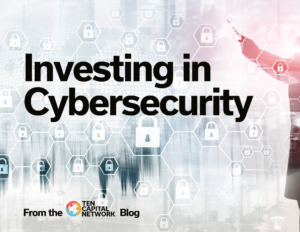
Should You Start an Angel Network?
1 min read Should You Start an Angel Network? Before making that decision, there are several questions you will need to ask yourself. Before launching

1 min read Should You Start an Angel Network? Before making that decision, there are several questions you will need to ask yourself. Before launching

2min read Why Should Angels Join More Than One Network? Angel investors are high-net-worth individuals who want to invest in startups. This is often a

2min read Why Should Angels Join More Than One Network? Angel investors are high-net-worth individuals who want to invest in startups. This is often a

3 min read What do investors see as the COVID-19 Impact on the Cybersecurity Space? The fact that COVID has impacted nearly every aspect of

2 min read Five Steps to Identifying Market Validation (and the one key criteria that counts). Angel investors look for market validation in a startup

3 min read Investing in Cybersecurity Cybersecurity resulted from the expanded exposure of people’s critical information on the web, including personal data, identifiable information, healthcare

1 min read Investing Challenges in Angel Investing. Angel investing can be fun and financially rewarding to the investor as well as helpful to the

1 min read An angel investor will find many benefits in joining an angel network. The angel network can build resources to share with the angel,
1 min read Should You Start an Angel Network? Before making that decision, there are several questions you will need to ask yourself. Before launching